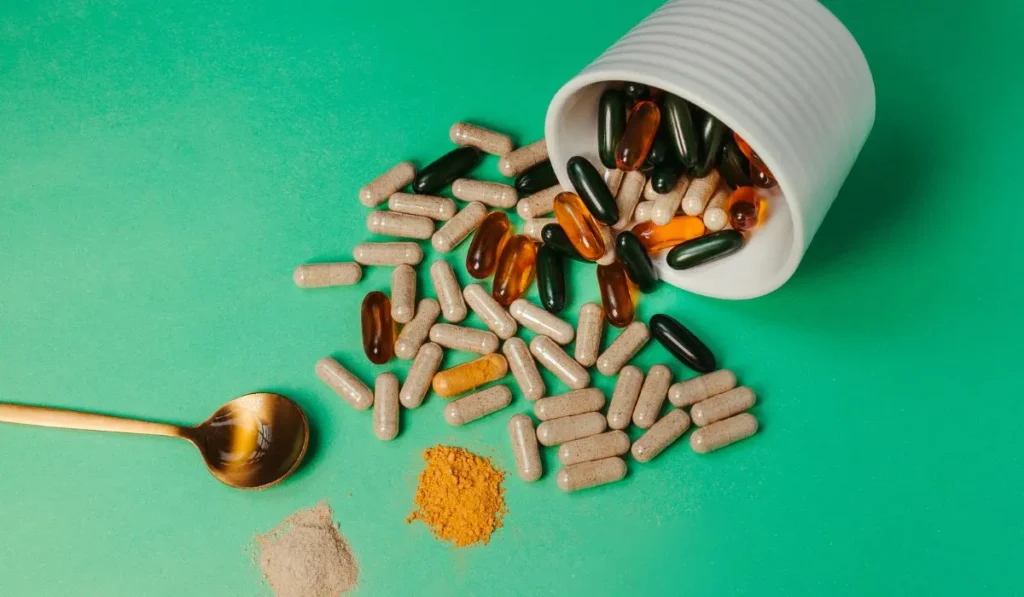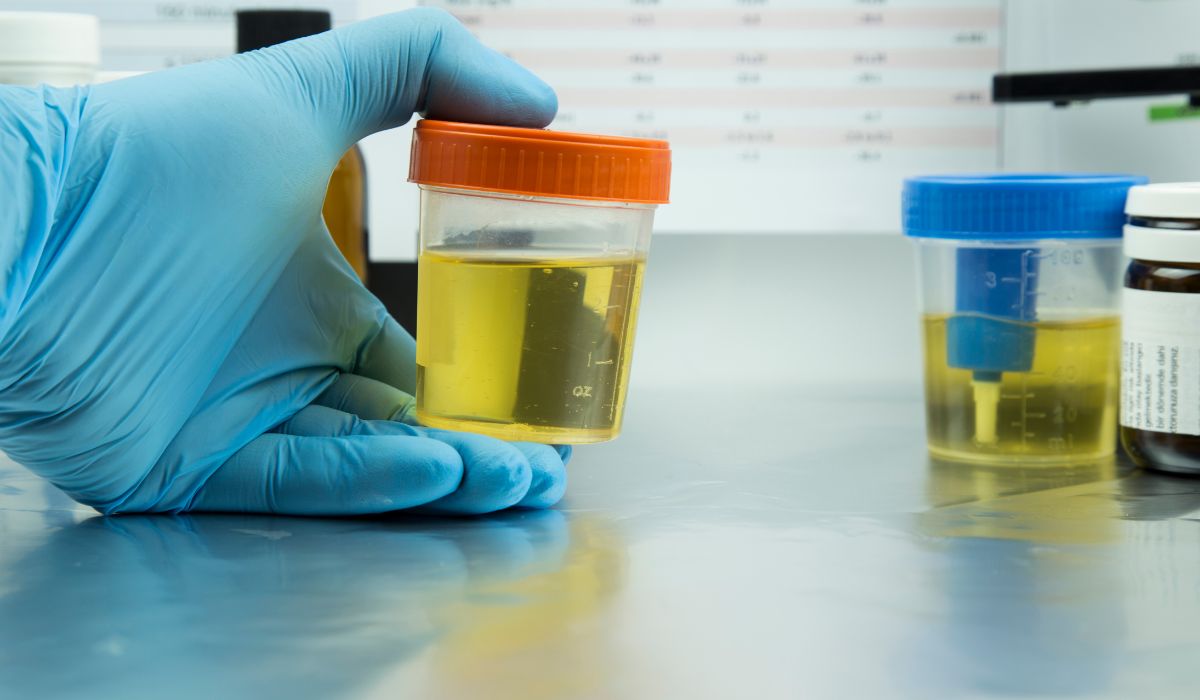What Is Kratom?
Kratom is a plant called Mitragyna speciosa. It grows on trees in Southeast Asia. People use the leaf to make tea, capsules, or powder. Some chew the leaf or take it in liquid form.
The active ingredient in kratom is mitragynine. It acts like a stimulant in low doses, giving more energy and alertness. At higher doses, it can act like an opioid, giving pain relief and sedation.
Many people take kratom to help with pain, anxiety, mood, or insomnia. But it’s not approved by the Food and Drug Administration (FDA). This means it’s not a safe medication or dietary supplement under U.S. law.

Is Kratom a Drug?
Yes, kratom is a drug. Even though it comes from a plant, it changes the way the brain and body work. Kratom works by touching opioid receptors in the brain, just like oxycodone, fentanyl, or tramadol.
It is not yet listed as a controlled substance under the Controlled Substances Act, but the Drug Enforcement Administration (DEA) and physicians are watching it closely.
Some doctors say it helps with pain management or opioid detox, but it also has risks. It may cause nausea, vomiting, diarrhea, constipation, weight loss, and irritability. It can lead to physical dependence, relapse, or substance abuse.
Does Kratom Show Up in a Urine Test?
This is the big question: Does kratom show up in a urine test?
The answer is — sometimes.
Most basic urinalysis drug screens used by employers or doctors do not test for kratom. They usually test for drugs like:
- Opiates
- Amphetamine
- Methamphetamine
- Benzodiazepine
- Phencyclidine (PCP)
- Barbiturate
- Alcohol
- Marijuana
But more advanced drug screens like mass spectrometry or chromatography can find kratom if they are set to detect its alkaloids — especially mitragynine, the metabolite of kratom.

How Long Does Kratom Stay in the Body?
Kratom’s metabolite, mitragynine, stays in your urine for about 5 to 7 days after your last dose. It may depend on:
- Your weight
- Your diet
- How much water you drink
- How much kratom you took
- Your liver and gastrointestinal tract health
- If you have a disease or take medications
In blood, kratom may only last for 24 to 48 hours. But hair follicle tests can find it for up to 90 days.
What Kinds of Drug Tests Can Detect Kratom?
There are different kinds of drug tests. Here’s how they may work for kratom:
Urine Test
A urine test is the most common. It checks for metabolites in your urine. A standard test usually won’t find kratom unless it’s made to do so.
Blood Test
A blood test may show kratom if done within a day or two of use. It’s good for finding active ingredients quickly.
Saliva Testing
Saliva testing is not great for finding kratom. Kratom doesn’t stay in the mouth very long.
Hair Follicle Test
Hair tests can find drugs for a long time. Even one use of kratom could show up in a hair follicle for months.
Why Would Someone Be Tested for Kratom?
People may be tested for kratom if they are in:
- Outpatient programs or PHP (Partial Hospitalization Program)
- Dual diagnosis treatment for mental health and substance abuse
- On probation or involved in law cases
- Going through detoxification or working toward sobriety
Doctors may also test for kratom to learn more about a patient’s health, medications, or mood changes.
Is Kratom Safe?
Kratom may seem like a safe natural plant, but it’s not risk-free.
It can:
- Act like a narcotic
- Change your appetite and weight
- Cause stomach problems
- Lead to prescription drug addiction if mixed with other opioids
- Be dangerous for people with attention deficit hyperactivity disorder or those taking Adderall
Using kratom without a physician’s help can be risky, especially with alcohol, methadone, buprenorphine, or diet pills.
Can Kratom Affect My Health Insurance or Job?
Yes, it can.
Employers may also see kratom use as a red flag, especially if you’re working with controlled substances or in high-risk jobs. Even though kratom is not illegal, it could affect your productivity, sobriety, and risk at work.
Is Kratom Used in Pain Management?
Some people use kratom as an analgesic, which means a pain reliever. It may help with chronic pain, but more research is needed.
It is not approved by the FDA for pain or mental health. Safer options like dialectical behavior therapy or doctor-approved medications are better for long-term care.
What Should I Do If I Take Kratom and Need a Drug Test?
Here are steps to take:
- Ask what the test will screen for.
- Tell your doctor or therapist about kratom use.
- Drink water, but don’t try to cheat a test.
- Think about detox and getting support from a treatment program.
- Always give consent before any test.
Can Kratom Be Dangerous With Other Drugs?
Yes. Mixing kratom with:
- Alcohol
- Methadone
- Tramadol
- Oxycodone
- Fentanyl
- Other controlled substances
…can be very risky.
These mixtures increase your chance of overdose, sedation, and death.
Is Kratom Legal?
In most states, yes. But some states like West Virginia and cities across the U.S. are working to ban or control it. Always check local law before buying kratom.

FAQs
Does kratom show up in a urine test for work?
Usually, no. Most work tests don’t look for kratom unless it’s a special test. But if the test uses mass spectrometry or chromatography, it might.
How long does kratom stay in your system?
Kratom stays in urine for about 5–7 days, blood for 1–2 days, and hair for up to 90 days, depending on how much you took.
Can kratom use be seen in a blood test?
Yes, but only if the test happens within a day or two. Blood tests catch kratom while it’s still active, not after it’s been fully broken down.
What happens if I mix kratom with alcohol?
Mixing kratom and alcohol can be dangerous. It can cause extreme sedation, slow drug metabolism, and raise your risk of overdose.
Should I stop using kratom before a drug test?
Yes. Stop early so your body can remove the metabolite through excretion. This helps keep your urinalysis clear.
Final Thoughts
If you’re asking, does kratom show up in a urine test, the answer is: it can. It depends on the type of test, your dose, and your health. Kratom affects the brain, the body, and your future.
Talk to a physician, check with your insurance, and take steps toward sobriety if needed. Whether it’s for a drug test, a health care check, or your mental health, knowing the truth helps keep you safe and strong.
Need help with kratom use or substance abuse? An outpatient program or detox center can support you. You can even verify insurance and pay with a credit card to get started today. Stay informed, stay healthy, and make choices that support your best life.








